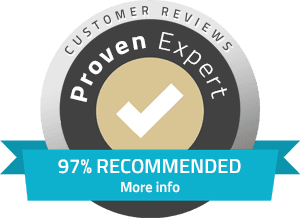Learning SEO, or Search Engine Optimization, properly involves a balance of theory, practice, and keeping up to date with how search engine algorithms are constantly evolving. Below are several highly effective methods for acquiring knowledge in SEO:
Start at the Bottom Line:
Start by knowing the basic concepts that work within SEO, including keywords, on-page optimization, off-page optimization, technical SEO, and local SEO.
Read Quality SEO Blogs and Books:
Follow reputable SEO blogs and websites like Moz, Search Engine Journal, and Ahrefs Blog to stay updated on the latest industry trends and techniques.
Consider reading books on SEO, such as “The Art of SEO” by Eric Enge, “SEO 2022” by Adam Clarke, or “SEO for Dummies” by Peter Kent.
Online Courses and Tutorials:
Enroll in online courses or tutorials that cover SEO. Websites such as Coursera, Udemy, and LinkedIn Learning provide a diverse selection of SEO courses.
Google’s SEO Starter Guide:
Study Google’s official SEO Starter Guide, which provides valuable insights into optimizing your website for search engines.
Practice:
Work on live websites or, better still, set up your own blog while you learn – nothing helps digest principles of SEO like hands-on experience.
Keyword Research:
Master doing keyword research by using tools such as Google Keyword Planner, SEMrush, and Ahrefs.This is an important step in the SEO success chain since the right keywords help users find what you are saying.
On-page Optimization:
Master how to do on-page SEO techniques. This means correctly optimizing title tags, meta descriptions, headings, content, and images.
Technical SEO:
This shall also include gaining knowledge of the technical SEO aspects, such as optimizing website speed, XML sitemaps, canonical tags, and the structured data markup.
Backlink Building
Acquire quality links from authoritative websites via ethical link-building strategies. Focus on white hat techniques to avoid penalty.
Analytics
Get familiar with tools like Google Analytics and Google Search Console in order to understand your website’s performance and which areas may need improvements.
Stay Updated:
SEO is a rapidly evolving field. Keep up with algorithm updates and industry changes by following SEO news, attending webinars, and participating in SEO forums and communities.
SEO Tools:
Use SEO tools like Moz, SEMrush, Ahrefs, and Screaming Frog to analyze your website’s performance, track keywords, and identify optimization opportunities.
Join SEO Communities:
Join SEO forums, communities, and social media groups to connect with other professionals, ask questions, and share knowledge.
Certifications:
Consider pursuing certifications like Google’s “Google Analytics Individual Qualification” and “Google Ads Search Certification” to validate your SEO skills.
Networking:
Attend SEO conferences, workshops, and meetups to network with industry experts and share the new trends in the industry.
Experiment:
You can experiment with different ways and approaches of doing SEO.
SEO cannot be done in a one-size-fits-all manner, and what works for one website may not work for another.
Our Services
SEO Service in Ranipet | Logo Design Service in Ranipet | Digital Marketing Training in Ranipet | Graphic Deign Service in Ranipet | Digital Marketing service in Ranipet | Website Development Service in Ranipet | SEO Service in Vellore | Logo Design Service in Vellore | Digital Marketing Training in Vellore | Graphic Deign Service in Vellore | Digital Marketing service in Vellore | Website Development Service in Vellore



